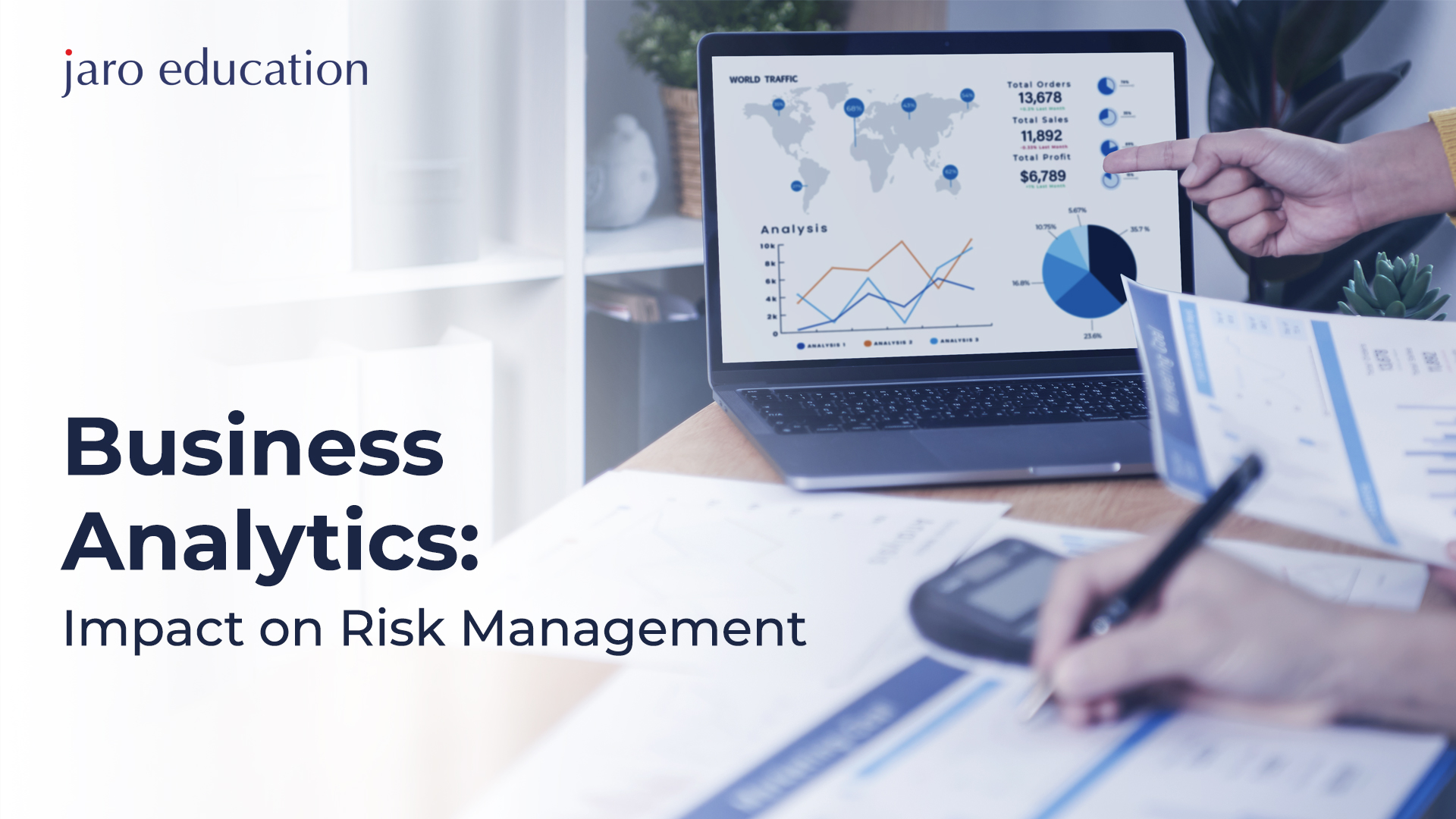
Business Analytics: Impact on Risk Management
The amount of data is ever-increasing in the digitally interconnected world. This gives rise to data analysis methods that help businesses dive deeper and extract meaningful insights that assist in risk analysis and management, which in turn, helps in improving different sectors of business operations.
One of the best ways to understand the impact of business analytics on risk management is by undergoing business analyst training through a business analytics certification course.
IIM Trichy offers an excellent business analytics certificate course, which we will discuss towards the end of the blog.
To begin with, first, let’s understand the impact of business analytics on risk management.
How Business Analytics Helps Businesses With Risk Management
The rise of new data risks has elevated the importance of business analytics more than ever before. Here are the various stages in risk management where business analytics makes a profound impact.
Risk Identification
Businesses can face risks due to internal and external factors. These can create difficulties for businesses in achieving their targets. Business analytics simplifies identifying and integrating the data points that can help identify emerging risks that may be hidden in plain sight.
A business analytics course gives in-depth insights and an understanding of various analytical and visualisation tools that can prove helpful in risk identification.
Risk Assessment and Prioritisation
Once the risks are identified, businesses need to assess and prioritise them based on their severity and urgency. This helps businesses better handle the risk and minimises the risk impact.
Business analytics tools help in understanding the impact of the risks and prioritise them based on the effect they can have on the business. They assess the financial and strategic implications of the risk and create a priority list based on the analysis and then, businesses take the necessary steps to handle them.
Risk Response and Mitigation
Once the risks have been identified and prioritised, businesses must deploy solutions to handle or mitigate them effectively. Business analytics models can simulate various output scenarios to help determine the best possible solution to address the problem. This method requires artificial intelligence and machine learning business intelligence analytical tools. You can learn about these tools with a business analytics course and apply the knowledge in your organisation.
Risk Monitoring
Risk monitoring is essential to understand the risks faced by the organisation and how the implemented solutions are helping in managing the risk. The data analytics tools provide automated alerts and reminders regarding the status of each risk. Businesses can thus, better carry out their risk management processes.
Risk Reporting
Having detailed reports about the risks, their impact, the solution deployed, and the effectiveness of the solution helps a business to move forward.
Business analytics tools help in getting a complete picture of everything related to risk management, handling, and mitigation.
Conclusion
Business analytics has become an integral part of operations in the current business landscape. It helps businesses identify operational threats and provides optimum solutions to tackle them. As we move towards a more interconnected, data-driven world, business analytics will establish a strong foothold from small enterprises to large multinational corporations.
Thus, now is the right time for candidates looking for a prosperous career option in business analytics to enroll in a business analyst course. You can consider IIM Trichy’s Post Graduate Certificate Programme in Business Analytics and Applications, which has a framework that will help in transforming data into business acumen to provide quality deliverables.
FAQs

